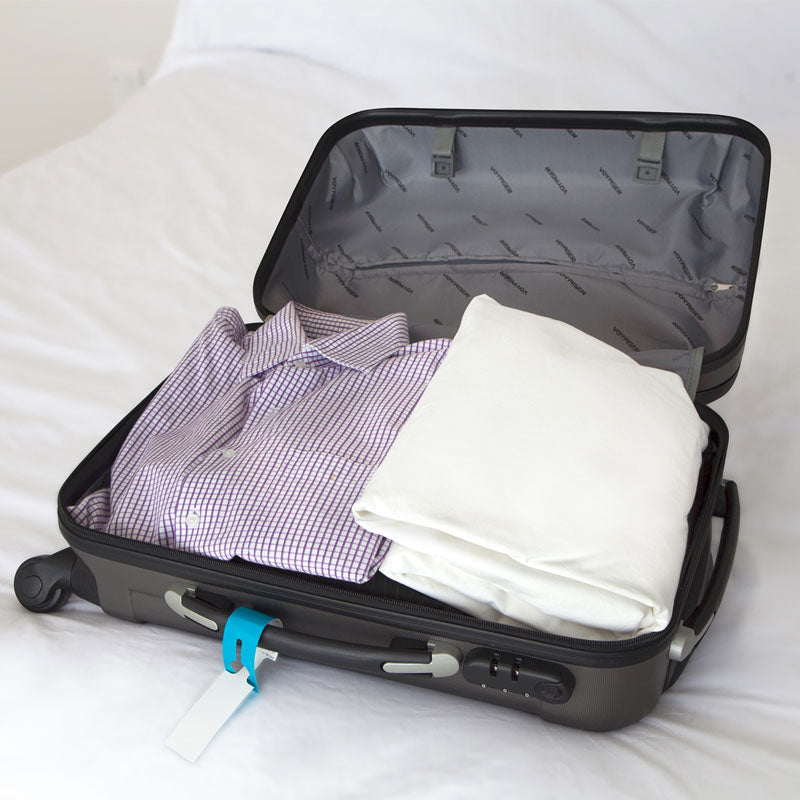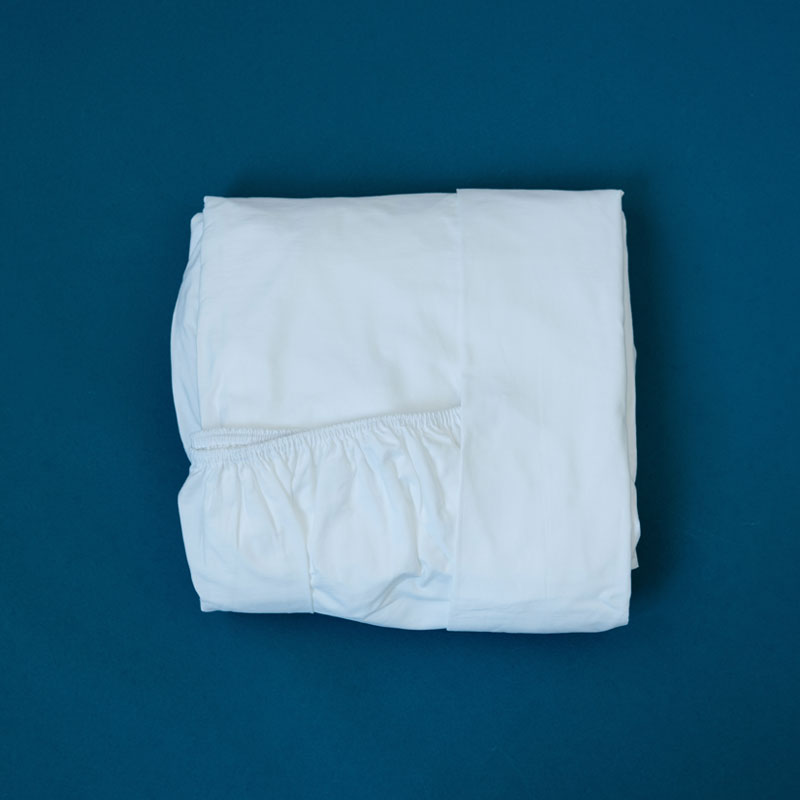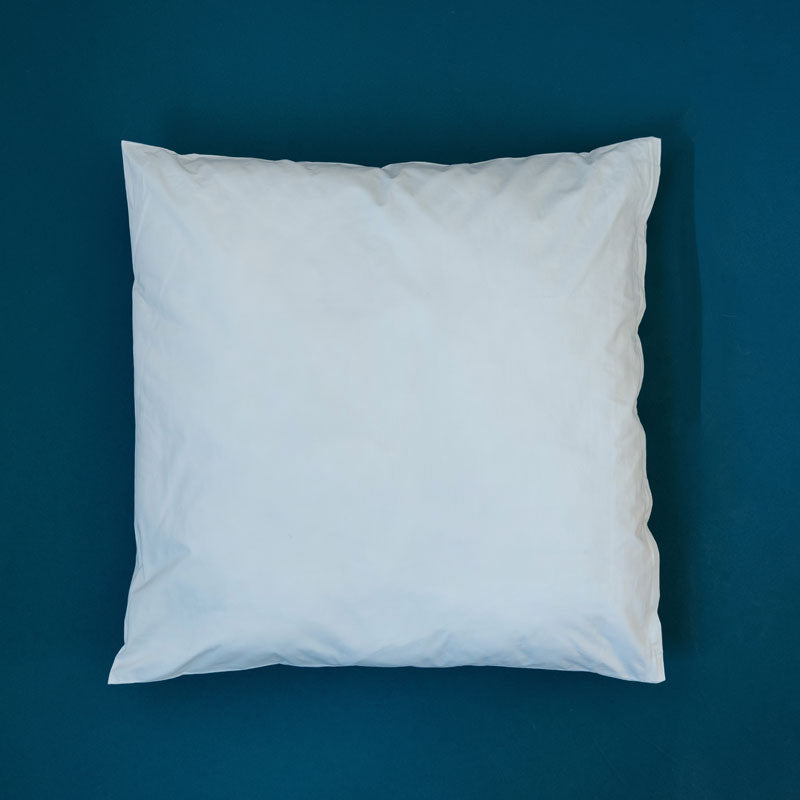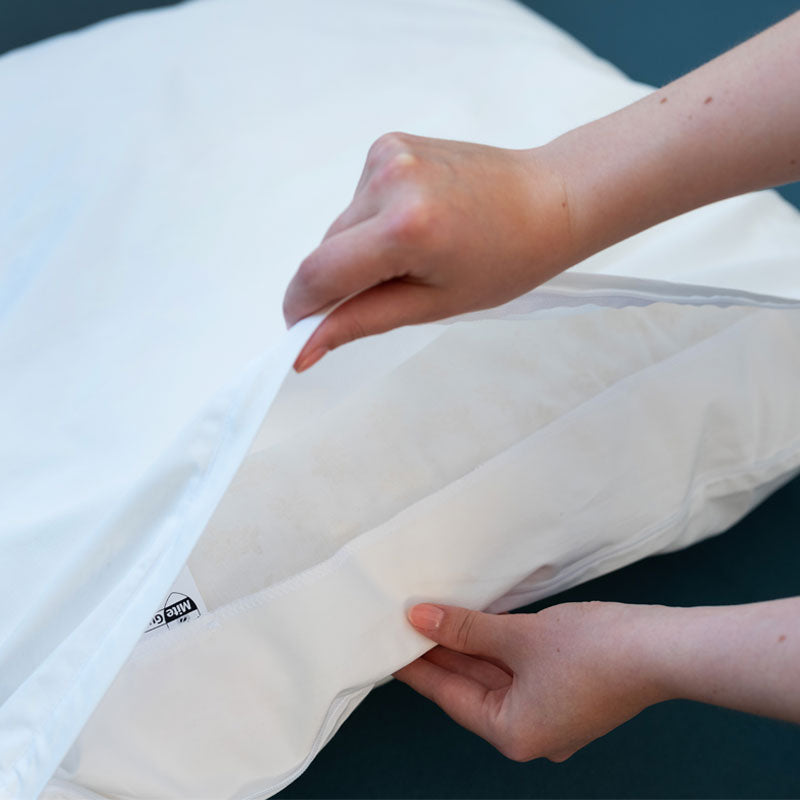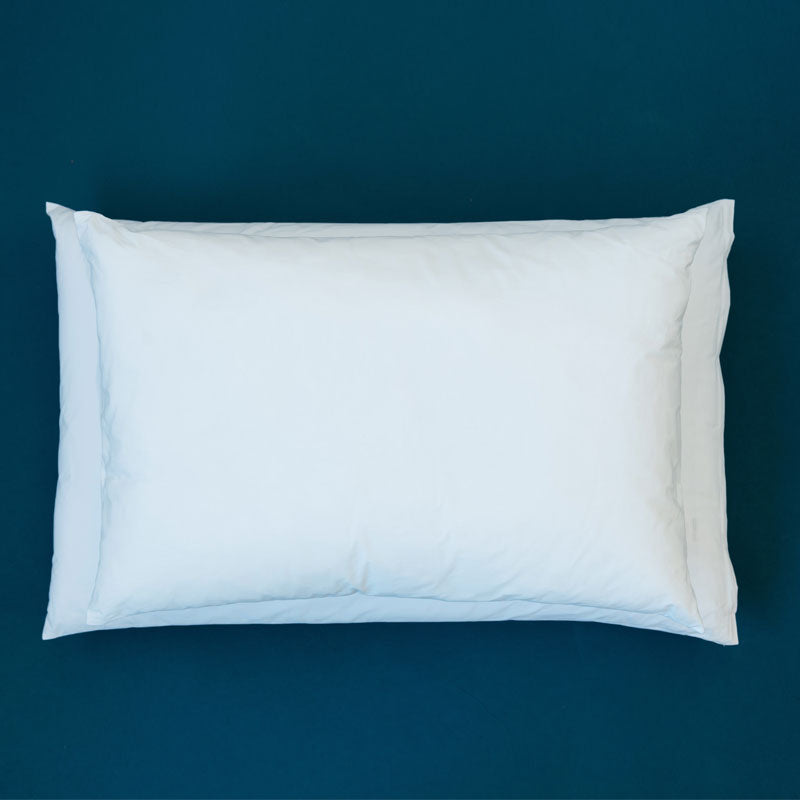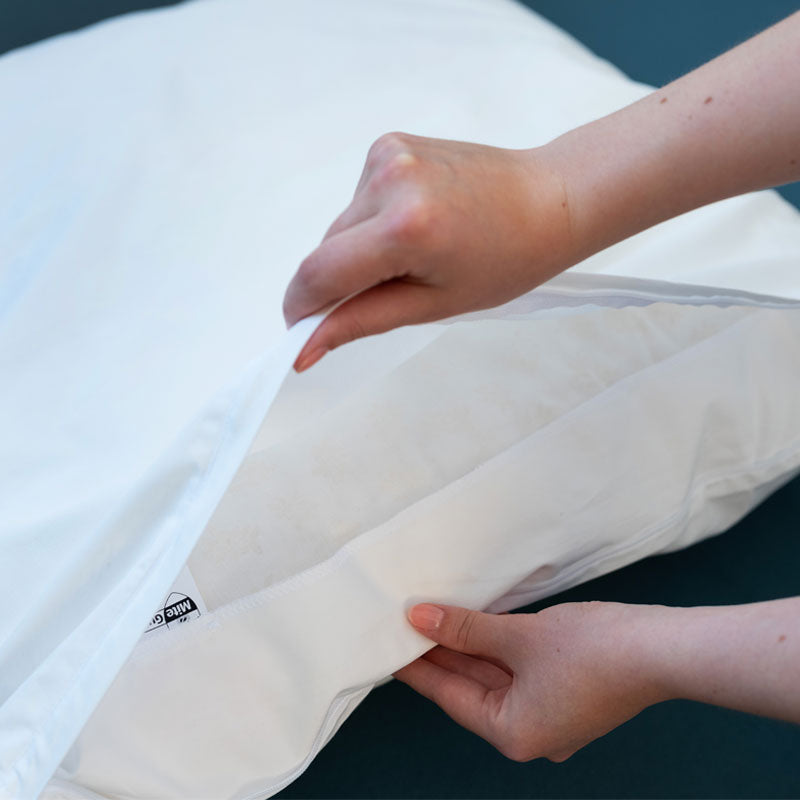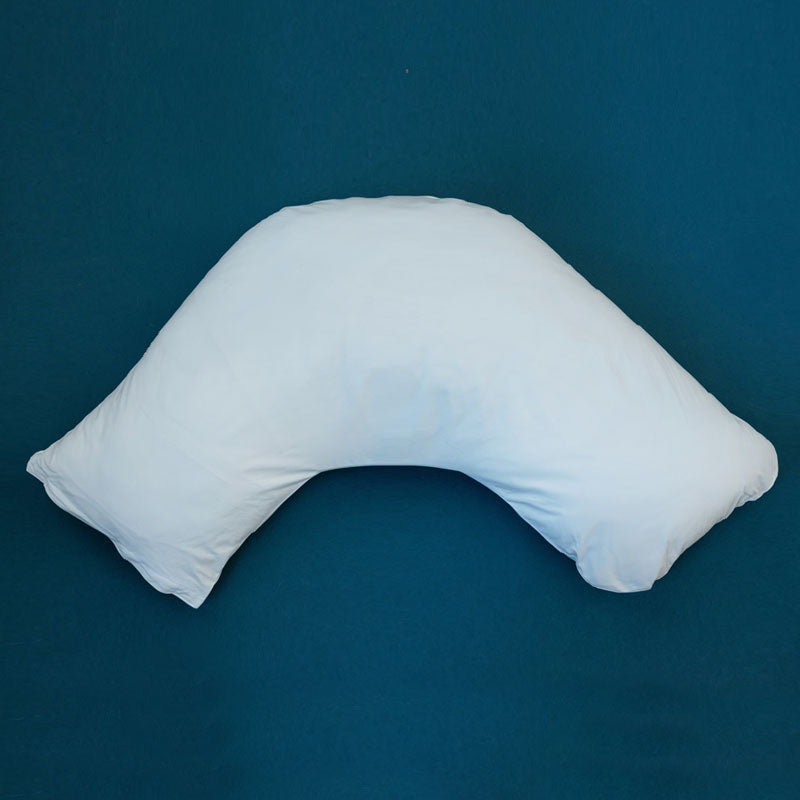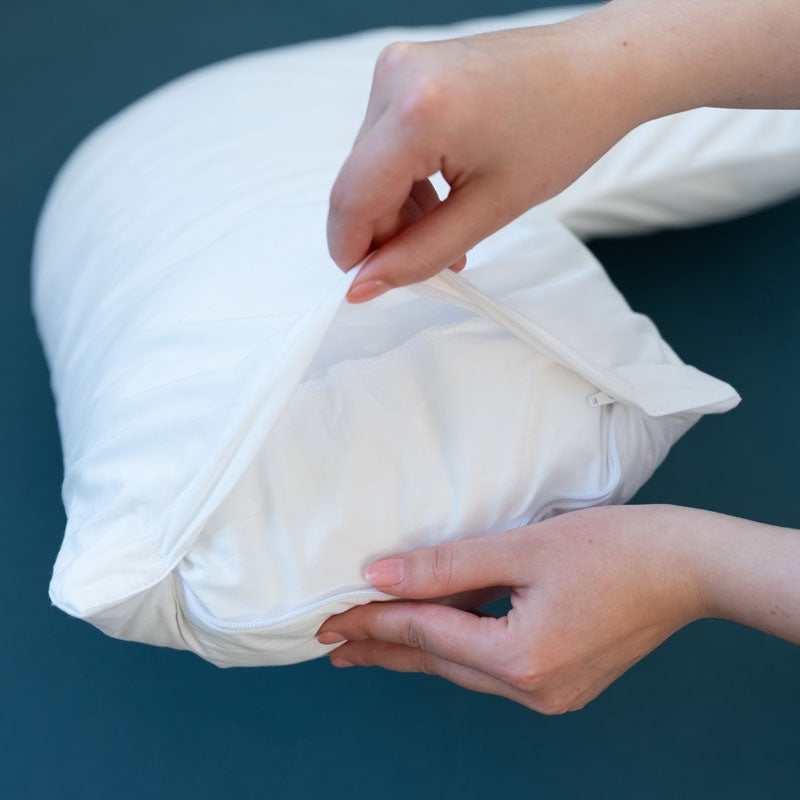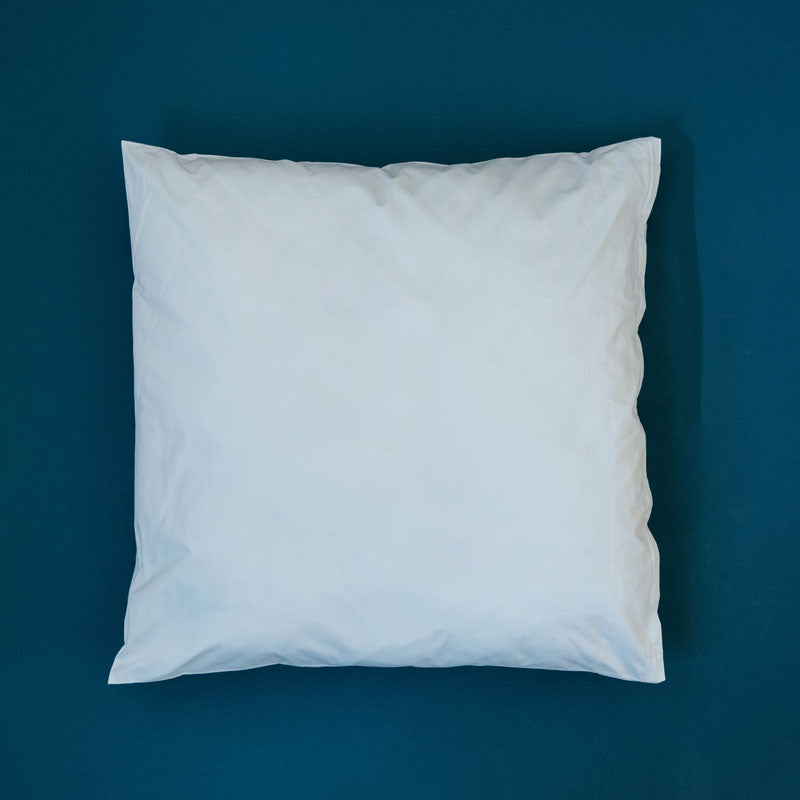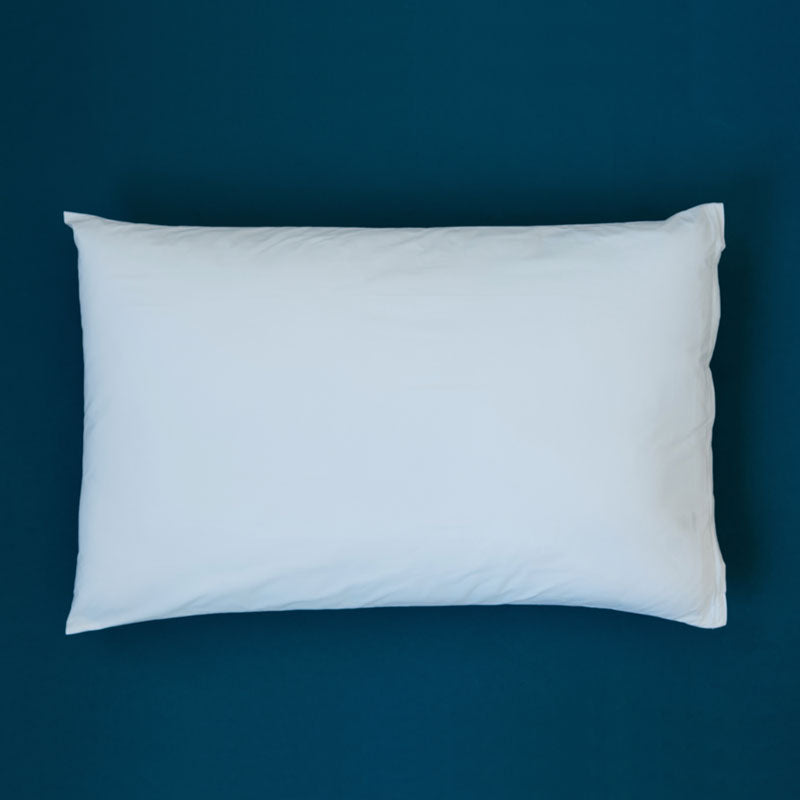
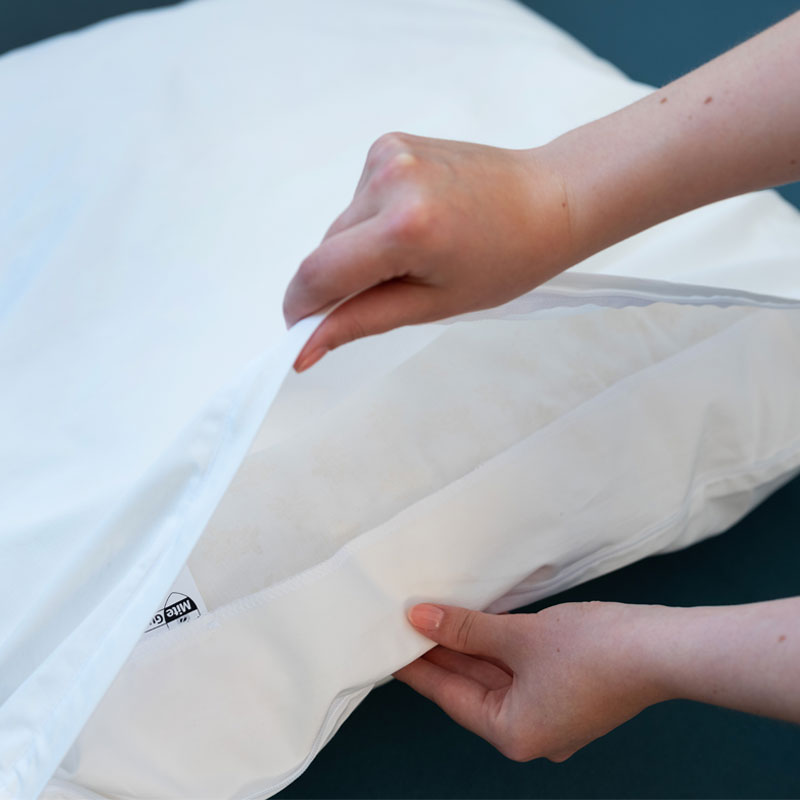






MiteGuard Pillow Cover - Standard Sizes
$49.00
Size Guide - Pillow Covers
MiteGuard Pillow Cases
| Size | Length (mm) | Width (mm) |
| Toddler /Small | 630 | 450 |
| Standard | 730 | 480 |
| Queen | 800 | 500 |
| Lodge | 920 | 550 |
| Euro Plain | 650 | 650 |
| Tri-Pillow | V Shape - side length ⁓ 650 | "leg" width 330 |
All sizes have a little extra added, to allow for hot washing, and ease of use.
Please select all options.
We recommend a MiteGuard pillow cover as the first barrier bedding item for anyone with Dust Mite allergies because of your pillow's closeness to the nose, mouth and eyes. Having a MiteGuard pillow cover will reduce your exposure to dust mite allergen particles as you sleep, allowing you to breathe more easily and better manage your health.
Customers who bought our pillow protectors have advised us that the benefits were immediate. The 3.5 micron natural cotton micro-weave fabric makes our covers effective, breathable, durable and comfortable to sleep on.
The zip enclosure goes most of the way across the opening, with a small protective closed section at each end of the zip. There is a protective flap both under the zip to stop any dust mites or allergen getting through, and also on top of the zip so it is comfortable to sleep on (no lumpy bits)!
Our standard pillow covers are designed to fit a range of rectangular pillows. The popular standard size is 73cm L x 48cm W (always a little extra added for shrinkage & ease of use). We have sizes for Toddler pillows to Queen.
Measure your pillow from seam to seam across both width and length, especially if your pillow is small but thick. Toddler pillows tend to be quite flat - If your pillow is small but deep (eg shaped memory foam) - you may need the standard size cover. Select your size from the selection bar - the size guide sits just above it.
Tri pillow covers and square cushion covers are available on the website.
Features:
- 3.5 micron barrier cotton fabric
-
Quality zips with protective flaps
- A little extra added for shrinkage & ease of use
- 5 year guarantee
- Made by Kiwis

Product Care
Wash your MiteGuard® Covers in hot water (60°C) every 3 months. We recommend doing a hot wash every time the seasons change.
In the meantime, you can vacuum your covers, or wipe them with a damp cloth between washes to keep allergen levels down.

Is it a dust mite allergy?
Frequent sneezing, a runny or stuffy nose and itchy eyes at bedtime are common symptoms of a Dust Mite allergy. You might also cough, have a wheeze or develop eczema.

Need a custom fit?
If the standard sizes available here are not quite the right fit for your requirements, contact us about a made-to-measure solution.






